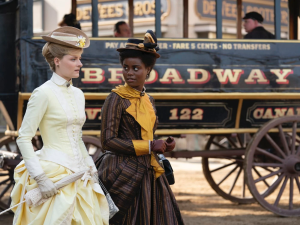Bad decision or bad character?
October 25, 2011
“Are you invincible?” This was the question Adam Ritz, a prominent Indianapolis radio and TV broadcaster, posed to hundreds of Iona students at an alcohol awareness seminar on Oct. 20 in the Hynes gym.
Ritz shared horror stories about young people who have made poor choices. He kept driving home the point that one bad decision can ruin your future, and possibly even end your life.
Despite the harsh message, the Purdue University graduate appeared to be a laid-back, likeable guy. He spoke about his job, his two daughters and his college years. He seemed to have a successful and desirable life.
Then Ritz pulled up a newspaper article on the screen behind him about a sexual assault case. The defendant was none other than Ritz himself.
The crowd of students fell silent.
Ritz then pulled up a news cast explaining that the then 33-year-old was accused of sexual battery on accusations that he fondled a 22-year-old woman.
A visibly dismayed Ritz said that he had been drinking and made a poor decision that severely impacted his life, his wife, his children and especially the victim. He said he spent six months in prison and is now a registered sex offender.
He said he never thought he’d be capable of doing such a horrible thing. He called it “disgusting” and apologized for his actions repeatedly.
He then concluded his presentation by reiterating his point that no one is invincible, especially when drugs and/or alcohol are involved.
I left the presentation stunned. What began as a light-hearted seminar ended with a grown man groveling for forgiveness from a room full of strangers.
The presentation was meant to highlight why good decision making is so important.
However, the problem I had with the presentation was the lack of distinction between people who make a poor choice that leads to an unforeseeable, tragic outcome and people who make a poor choice that leads to a completely foreseeable outcome.
For instance, Ritz told the story of a college freshman who plunged 22 stories to her death after a night of partying and another story of a young man who died from a cocaine overdose. He also told the story of a college official who got arrested for stealing from Walmart using a premeditated plan of reusing receipts.
Ritz’s bottom line for all of these stories was no one is invincible and that one bad decision can ruin your life. I think that Ritz’ message was too simplified.
The young man and woman who died suffered unforeseeable tragedies. They did make poor decisions to consume an excess of alcohol and/or drugs, but they could not have foreseen it would lead to their deaths. Their decisions, although poor, were not meant to reach that final outcome.
The college official’s intent, however, did match the outcome. The man intended to steal, which he did. This man consciously decided he wanted to steal.
Ritz’s own crime, in my opinion, also seemed to be a foreseeable consequence of an action. He intended to make advances on a young woman who did not desire him. This is wrong, whether alcohol was involved or not.
So what does he do? He labels his actions as a “bad decision,” grovels for forgiveness and is pretty much forgiven (evident by the fact that he is hired to speak by colleges across the country).
This process – go public, label it a bad decision, grovel, be forgiven — seems to be the logical order of events when any prominent person gets into trouble these days. (Think Tiger Woods, Bill Clinton, Martha Stewart.)
In every case, the question should be posed: was the outcome actually caused by one bad decision or was it caused by overarching bad character?
To contact The Ionian’s Lauren Urban, e-mail her at [email protected]













